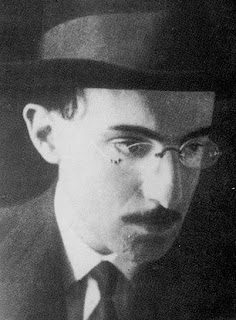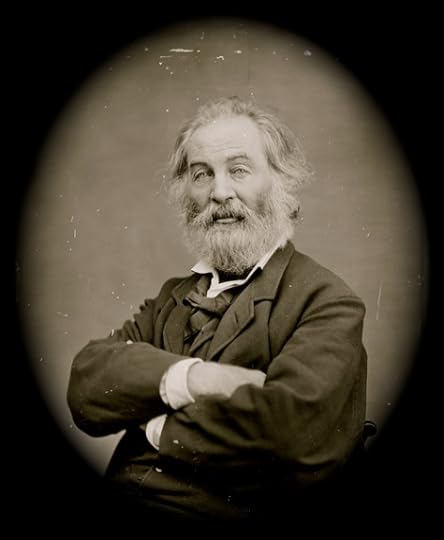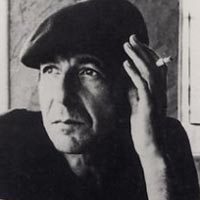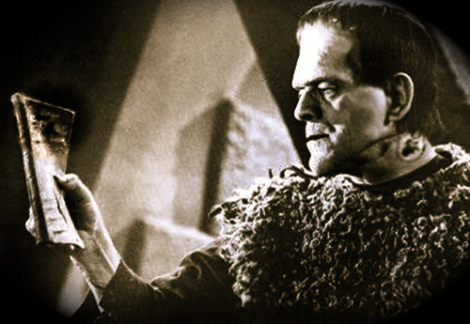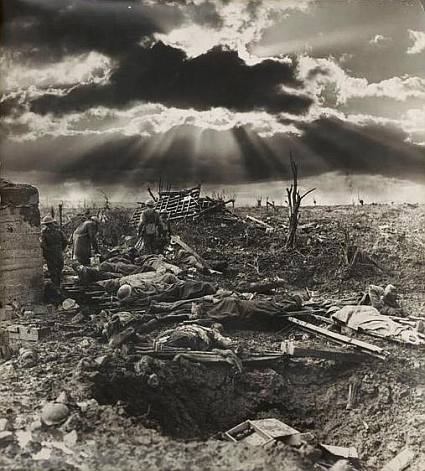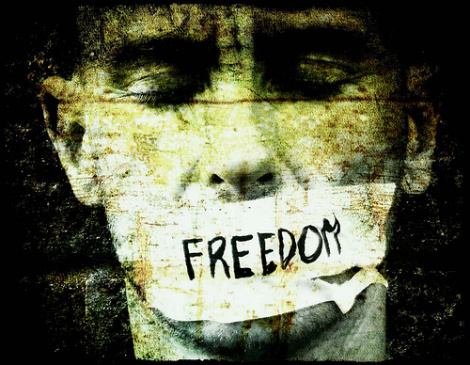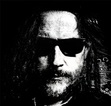R.M. Engelhardt's Blog: Burn Brightly, page 39
March 29, 2013
Death to the Death of Poetry

By Donald Hall
Some days, when you read the newspaper, it seems clear that the United States is a country devoted to poetry. You can delude yourself reading the sports pages. After finding two references to “poetry in motion,” apropos of figure skating and the Kentucky Derby, you read that a shortstop is the poet of his position and that sailboats raced under blue skies that were sheer poetry. On the funny pages, Zippy praises Zerbina’s outfit: “You’re a poem in polyester.” A funeral director, in an advertisement, muses on the necessity for poetry in our daily lives. It’s hard to figure out just what he’s talking about, but it becomes clear that this poetry has nothing to do with poems. It sounds more like taking naps.
Poetry, then, appears to be:
a vacuous synonym for excellence or unconsciousness. What else is common to the public perception of poetry?
It is universally agreed that no one reads it.
It is universally agreed that the nonreading of poetry is (a) contemporary and (b) progressive. From (a) it follows that sometime back (a wandering date, like “olden times” for a six-year-old) our ancestors read poems, and poets were rich and famous. From (b) it follows that every year fewer people read poems (or buy books or go to poetry readings) than the year before.
Other pieces of common knowledge:
Only poets read poetry.
Poets themselves are to blame because “poetry has lost its audience.”
Everybody today knows that poetry is “useless and completely out of date”—as Flaubert put it in Bouvard and Pécuchet a century ago.
For expansion on and repetition of these well-known facts, look in volumes of Time magazine, in Edmund Wilson’s “Is Verse a Dying Technique?,” in current newspapers everywhere, in interviews with publishers, in book reviews by poets, and in the August 1988 issue of Commentary, where the essayist Joseph Epstein assembled every cliché about poetry, common for two centuries, under the title “Who Killed Poetry?”
Time, which reported The Waste Land as a hoax in 1922, canonized T. S. Eliot in a 1950 cover story. Certainly Time’s writers and editors altered over thirty years, but they also stayed the same: always the Giants grow old and die, leaving the Pygmies behind. After the age of Eliot, Frost, Stevens, Moore, and Williams, the wee survivors were Lowell, Berryman, Jarrell, and Bishop. When the survivors died, younger elegiac journalists revealed that the dead Pygmies had been Giants all along—and now the young poets were dwarfs. Doubtless obituaries lauding Allen Ginsberg are already written; does anyone remember Life on the Beat Generation, thirty years ago?
“Is Verse a Dying Technique?” Edmund Wilson answered yes in 1928. It is not one of the maestro’s better essays. Wilson’s long view makes the point that doctors and physicists no longer use poetry when they write about medicine and the universe. Yes, Lucretius is dead. And yes, Coleridge had a notion of poetry rather different from Horace’s. But Wilson also announced in 1928 that poetry had collapsed because “since the Sandburg-Pound generation, a new development in verse has taken place. The sharpness and the energy disappear; the beat gives way to a demoralized weariness.” (He speaks, of course, in the heyday of Moore and Williams, Frost, H. D., Stevens, and Eliot; reprinting the essay in 1948, he added a paragraph nervously acknowledging Auden, whom he had put down twenty years before.) He goes on, amazingly, to explain the problem’s source: “The trouble is that no verse technique is more obsolete today than blank verse. The old iambic pentameters have no longer any relation whatever to the tempo and language of our lives. Yeats was the last who could write them.”
But Yeats wrote little blank verse of interest, bar “The Second Coming.” As it happens, two Americans of Wilson’s time wrote superb blank verse. (Really I should say three, because E. A. Robinson flourished in 1928. But his annual blank verse narratives were not so brilliant as his earlier work; and of course he antedated “the Sandburg-Pound generation.”) Robert Frost, starting from Wordsworth, made an idiomatic American blank verse, especially in his dramatic monologues, which is possibly the best modern example of that metric; and Wallace Stevens, starting from Tennyson, made blank verse as gorgeous as “Tithonus.” Read Frost’s “Home Burial” and Stevens’s “Sunday Morning” and then tell me that blank verse was obsolete in 1928.
Poetry was never Wilson’s strong suit. It is worthwhile to remember that Wilson found Edna St. Vincent Millay the great poet of her age—better than Robert Frost, Marianne Moore, T. S. Eliot, Ezra Pound, Wallace Stevens, and William Carlos Williams. In a late self-interview by Wilson in the New Yorker, he revealed that among contemporary poets only Robert Lowell was worth reading. It saves a lot of time, not needing to check out Elizabeth Bishop, John Ashbery, Galway Kinnell, Louis Simpson, Adrienne Rich, Sylvia Plath, Robert Bly, John Berryman…
Sixty years after Edmund Wilson told us that verse was dying, Joseph Epstein in Commentary revealed that it was murdered. Of course, Epstein’s golden age—Stevens, Frost, Williams—is Wilson’s era of “demoralized weariness.” Everything changes and everything stays the same. Poetry was always in good shape twenty or thirty years ago; now it has always gone to hell. I have heard this lamentation for forty years, not only from distinguished critics and essayists but from professors and journalists who enjoy viewing our culture with alarm. Repetition of a formula, under changed circumstances and with different particulars, does not make formulaic complaint invalid; but surely it suggests that the formula represents something besides what it repeatedly affirms.
In asking “Who Killed Poetry?” Joseph Epstein begins by insisting that he does not dislike it. “I was taught that poetry was itself an exalted thing.” He admits his “quasi-religious language” and asserts that “it was during the 1950s that poetry last had this religious aura.” Did Epstein go to school “during the 1950s”? If he attended poetry readings in 1989 with unblinkered eyes, he would watch twenty-year-olds undergoing quasi-religious emotions—one of whom, almost certainly, will write an essay in the 2020s telling the world that poetry is moldering in its grave.
Worship is not love. People who at the age of fifty deplore the death of poetry are the same people who in their twenties were “taught to exalt it.” The middle-aged poetry detractor is the student who hyperventilated at poetry readings thirty years earlier—during Wilson’s “Pound-Sandburg era” or Epstein’s aura-era of “T. S. Eliot and Wallace Stevens, Robert Frost and William Carlos Williams.” After college many English majors stop reading contemporary poetry. Why not? They become involved in journalism or scholarship, essay writing or editing, brokerage or social work; they backslide from the undergraduate Church of Poetry. Years later, glancing belatedly at the poetic scene, they tell us that poetry is dead. They left poetry; therefore they blame poetry for leaving them. Really, they lament their own aging. Don’t we all? But some of us do not blame the current poets.
Epstein localizes his attack on two poets, unnamed but ethnically specified: “One of the two was a Hawaiian of Japanese ancestry, the other was middle-class Jewish.” (They were Garrett Hongo and Edward Hirsch, who testified on behalf of American poetry to the National Council of the Arts, where Joseph Epstein as a Councillor regularly assured his colleagues that contemporary American writing was dreck.) Epstein speaks disparagingly of these “Japanese” and “Jewish” poets, in his ironic mosquito whine, and calls their poems “heavily preening, and not distinguished enough in language or subtlety of thought to be memorable.”
Such disparagement is pure blurbtalk. He does not quote a line by either poet he dismisses. As with the aging Edmund Wilson, Epstein saves time by ignoring particulars of the art he disparages.
Dubious elegies on the death of poetry shouldn’t need answers. A frequently reported lie, however, can turn into fact. In his essay, Joseph Epstein tells us that “last year the Los Angeles Times announced it would no longer review books of poems.” In the Washington Post, Jonathan Yardley referred to the same event, which never happened, and applauded what never happened except in his own negligent error.
The editor of the Los Angeles Times Book Review announced that his paper would review fewer books; instead, the Review would print a whole poem in a box every week, with a note on the poet. In the years since instituting this policy, LATBR has continued to review poetry—more than the New York Times Book Review has done—and in addition has printed an ongoing anthology of contemporary American verse. The Los Angeles Times probably pays more attention to poetry than any other newspaper in the country.
Yet when the LAT announced its new policy, poets picketed the paper. Poets love to parade as victims; we love the romance of alienation and insult.
More than a thousand poetry books appear in this country each year. More people write poetry in this country—publish it, hear it, and presumably read it—than ever before. Let us quickly and loudly proclaim that no poet sells like Stephen King, that poetry is not as popular as professional wrestling, and that fewer people attend poetry readings in the United States than in Russia. Snore, snore. More people read poetry now in the United States than ever did before.
When I was in school in the 1940s, there were few poetry readings; only Frost did many. If we consult biographies of Stevens and Williams, we understand that for them a poetry reading was an unusual event. In these decades, the magazine Poetry printed on its back cover Walt Whitman’s claim that “to have great poets there must be great audiences too” but it seemed an idle notion at the time. Then readings picked up in the late 1950s, avalanched in the 1960s, and continue unabated in the 1990s.
Readings sell books, When trade publishers in 1950 issued a third book by a prominent poet, they printed hardbound copies, possibly a thousand. If the edition sold out in three or four years, everybody was happy. The same trade publisher in 1989 would likely print the same poet in an edition of five thousand, hard and soft—and the book would stand a good chance of being reprinted, at least in paper. Recently, a dozen or more American poets have sold at least some of their books by the tens of thousands: Adrienne Rich, Robert Bly, Allen Ginsberg, John Ashbery, Galway Kinnell, Robert Creeley, Gary Snyder, Denise Levertov,Carolyn Forché; doubtless others. Last I knew, Galway Kinnell approached fifty thousand—over the years—with Book of Nightmares.
It is not only the sales of books that one can adduce to support the notion that poetry’s audience has grown tenfold in the last thirty years. If poetry readings provide the largest new audience, there are also more poetry magazines, and those magazines sell more copies. In 1955 no one would have believed you if you had suggested that two or three decades hence the United States would support a bimonthly poetry tabloid with a circulation of twenty thousand available on newsstands coast to coast. Everybody complains about the American Poetry Review; nobody acknowledges how remarkable it is that it exists.
A few years back, a journal of the publishing industry printed a list of all-time trade paperback best-sellers, beginning with The Joy of Sex, which sold millions, on down to books that had sold two hundred fifty thousand. It happened that I read the chart shortly after learning that Lawrence Ferlinghetti’s Coney Island of the Mind, a trade paperback, had sold more than a million copies. Because the book was poetry, the journal understood that its sales did not count.
When I make these points, I encounter fierce resistance. No one wants to believe me. If ever I convince people that these numbers are correct, they come up with excuses: Bly sells because he’s a showman; Ginsberg is notorious; Rich sells because of feminist politics. People come up with excuses for these numbers because the notion of poetry’s disfavor is important—to poetry’s detractors and to its supporters. Why does almost everyone connected with poetry claim that poetry’s audience has diminished? Doubtless the pursuit of failure and humiliation is part of it. There is also a source that is lovable if unobservant: Some of us love poetry so dearly that its absence from everybody’s life seems an outrage. Our parents don’t read James Merrill! Therefore, exaggerating out of foiled passion, we claim that “nobody reads poetry.”
When I contradict such notions, at first I insist merely on numbers. If everybody artistic loathes statistics, everybody artistic still tells us that “nobody reads poetry,” which is a numerical notion—and untrue. Of course, the numbers I recite have nothing whatsoever to do with the quality or spirit of the poetry sold or read aloud. I include no Rod McKuen in my figures; I include only poetry that intends artistic excellence. My numbers counter only numbers—and not assertions of value and its lack.
But I need as well, and separately, to insist: I believe in the quality of the best contemporary poetry; I believe that the best American poetry of our day makes a considerable literature. American Poetry after Lowell—an anthology of four hundred pages limited, say, to women and men born from the 1920s through the 1940s—would collect a large body of diverse, intelligent, beautiful, moving work that should endure. Mind you, it would limit itself to one-hundredth of one percent of the poems published. If you write about Poetry Now, you must acknowledge that most poetry is terrible—that most poetry of any moment is terrible. When, at any historical moment, you write an article claiming that poetry is now in terrible shape, you are always right. Therefore, you are always fatuous.
Our trouble is not with poetry but with the public perception of poetry. Although we have more poetry today, we have less poetry reviewing in national journals. Both Harper’s magazine and the Atlantic have abandoned quarterly surveys of poetry. The New York Times Book Review never showed much interest, but as poetry has increased in popularity, the Times has diminished its attention. The New York Review of Books, always more political than poetical, gives poetry less space every year. The greatest falling-off is at the New Yorker. The New Yorker once regularly published Louise Bogan’s essays on “Verse.” Lately, when the magazine touches on poetry, Helen Vendler is more inclined to write about a translation or about a poet safely dead. In the past, men and women like Conrad Aiken, Malcolm Cowley, and Louise Bogan practiced literary journalism to make a living. Their successors now meet classes MWF. People with tenure don’t need to write book reviews.
Their absence is poetry’s loss, and the poetry reader’s—for we need a cadre of reviewers to sift through the great volume of material. The weight of numbers discourages readers from trying to keep up. More poetry than ever: How do we discriminate? How do we find or identify beautiful new work? When there are sufficient reviewers, who occupy continual soap-boxes and promote developing standards, they provide sensors to report from the confusing plentitude of the field.
Beside the weight of numbers, another perennial source of confusion is partisanship. When I was in my twenties and writing iambic stanzas, Allen Ginsberg’s Howl was a living reproach. For a while I denigrated Allen: “If he’s right, I must be wrong.” Such an either/or is silly and commonplace: restrictions are impoverishments. In the 1920s one was not allowed to admire both T. S. Eliot and Thomas Hardy; it was difficult for intellectuals who admired Wallace Stevens and his bric-a-brac to find houseroom for Robert Frost and his subjects. Looking back at the long heyday of modern poetry, removed by time from partisanship, we can admire the era’s virtuosity, the various excellences of these disparate characters born in the 1870s and 1880s, who knew each other and wrote as if they didn’t. What foursome could be more dissimilar than Moore, Williams, Stevens, and Frost? Maybe the answer is: some foursome right now.
There are a thousand ways to love a poem. The best poets make up new ways, and the new ways mostly take getting used to. The poetry reading helps toward understanding (which explains how poetry thrives without book reviewing) because the poet’s voice and gesture provide entrance to the poetry: a way in, a hand at the elbow. The poetry reading helps—but as a substitute for reviewing it is inefficient. And sometimes it is hard to know whether we cherish the poem or its performance.
At least there are many poets, many readings—and there is an audience. For someone like me, born in the 1920s, which produced great poetry and neglected to read it—Knopf remaindered Wallace Stevens—our poetic moment is inspiriting. As I grew up, from the 1930s to the 1950s, poets seldom read aloud and felt lucky to sell a thousand copies. In the 1990s the American climate for poetry is infinitely more generous. In the mail, in the rows of listeners, even in the store down the road, I find generous response. I find it in magazines and in rows of listeners in Pocatello and Akron, in Florence, South Carolina, and in Quartz Mountain, Oklahoma. I find it in books published and in extraordinary sales for many books.
While most readers and poets agree that “nobody reads poetry”—and we warm ourselves by the gregarious fires of our solitary art—maybe a multitude of nobodies assembles the great audience Whitman looked for.
This essay comes from Harper’s magazine, 1989. Much of it appears in the Introduction to Best American Poetry 1989. Reprinted here from Death to the Death of Poetry by Donald Hall, published by University of Michigan Press. Copyright © 1994 by Donald Hall. Reprinted by permission. All rights reserved.


The Writing Life …
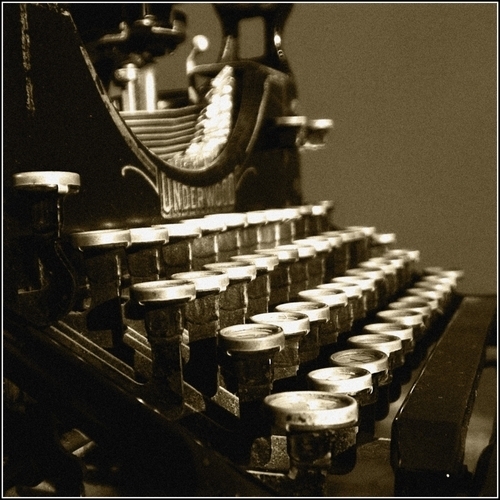
Sometimes it’s great, and sometimes it’s shit.
These are the things all the great philosophers
Just won’t tell you flat out about life.
So you just keep moving, keep living, keep breathing
And you keep writing-creating because that’s what you do
And that’s who you are.
There are no magical voices to guide
You except your own.
Make it count.


March 27, 2013
The Article
Article In The Times Union Newspaper on “The Resurrection Waltz” March 2013
Read It Here:


I was born in a time when …
I was born in a time when the majority of young people had lost faith in God, for the same reason their elders had had it — without knowing why. And since the human spirit naturally tends to make judgements based on feeling instead of reason, most of these young people chose Humanity to replace God. I, however, am the sort of person who is always on the fringe of what he belongs to, seeing not only the multitude he’s part of but also the wide-open spaces around it. That’s why I didn’t give up God as completely as they did, and I never accepted Humanity. I reasoned that God, while improbable, might exist, in which case he should be worshipped; whereas Humanity, being a mere biological idea and signifying nothing more than the animal species we belong to, was no more deserving of worship than any other animal species. The cult of Humanity, with its rites of Freedom and Equality, always struck me as a revival of those ancient cults in which gods were like animals or had animal heads.
And so, not knowing how to believe in God and unable to believe in an aggregate of animals, I, along with other people on the fringe, kept a distance from things, a distance commonly called Decadence. Decadence is the total loss of unconsciousness, which is the very basis of life. Could it think, the heart would stop beating.
For those few like me who live without knowing how to have life, what’s left but renunciation as our way and contemplation as our destiny? Not knowing nor able to know what religious life is, since faith isn’t acquired through reason, and unable to have faith in or even react to the abstract notion of man, we’re left with the aesthetic contemplation of life as our reason for having a soul. Impassive to the solemnity of any and all worlds, indifferent to the divine, and disdainers of what is human, we uselessly surrender ourselves to pointless sensations, cultivated in a refined Epicureanism, as befits our cerebral nerves.
Retaining from science only its fundamental precept — that everything is subject to fatal laws, which we cannot freely react to since the laws themselves determine all reactions — and seeing how this precept concurs with the more ancient one of the divine fatality of things, we abdicate from every effort like the weak-bodied from athletic endeavours, and we hunch over the book of sensations like scrupulous scholars of feeling.
Taking nothing seriously and recognizing our sensation as the only reality we have for certain, we take refuge there, exploring them like large unknown countries. And if we apply ourselves diligently not only to aesthetic contemplation but also to the expression of its methods and results, it’s because the poetry or prose we write — devoid of any desire to move anyone else’s will or to mould anyone’s understanding — is merely like when a reader reads out loud to fully objectify the subjective pleasure of reading.
We’re well aware that every creative work is imperfect and that our most dubious aesthetic contemplation will be the one whose object is what we write. But everything is imperfect. There’s no sunset so lovely it couldn’t be yet lovelier, no gentle breeze bringing us sleep that couldn’t bring a yet sounder sleep. And so, contemplators of statues and mountains alike, enjoying both books and the passing days, and dreaming all things so as to transform them into our own substance, we will also write down descriptions and analyses which, when they’re finished, will become extraneous things that we can enjoy as if they happened along one day.
This isn’t the viewpoint of pessimists like Vigny, for whom life was a prison in which he wove straw to keep busy and forget. To be a pessimist is to see everything tragically, an attitude that’s both excessive and uncomfortable. While it’s true that we ascribe no value to the work we produce and that we produce it to keep busy, we’re not like the prisoner who busily weaves straw to forget about his fate; we’re like the girl who embroiders pillows for no other reason than to keep busy.
I see life as a roadside inn where I have to stay until the coach from the abyss pulls up. I don’t know where it will take me, because I don’t know anything. I could see this inn as a prison, for I’m compelled to wait in it; I could see it as a social centre, for it’s here that I meet others. But I’m neither impatient nor common. I leave who will to stay shut up in their rooms, sprawled out on bed where they sleeplessly wait, and I leave who will to chat in the parlours, from where their songs and voices conveniently drift out here to me. I’m sitting at the door, feasting my eyes and ears on the colours and sounds of the landscape, and I softly sing — for myself alone — wispy songs I compose while waiting.
Night will fall on us all and the coach will pull up. I enjoy the breeze I’m given and the soul I was given to enjoy it with, and I no longer question or seek. If what I write in the book of travellers can, when read by others at some future date, also entertain them on their journey, then fine. If they don’t read it, or are not entertained, that’s fine too.
Fernando Pessoa (1888–1935) – The Book of Disquiet


March 26, 2013
WALT WHITMAN IS DEAD
Whitman died on this day in 1892; aged 72. A public viewing of his body was held at his Camden home; more than one thousand people visited in three hours and Whitman’s oak coffin was barely visible because of all the flowers and wreaths left for him. Four days after his death, he was buried in his tomb at Harleigh Cemetery in Camden.
_______________
WALT WHITMAN IS DEAD
Where are you now?
Uncle?
Poet?
Walt?
Old man, child of the Long Island
Free verse son of America,
Teacher & government work-man?
“Human – Being”
Citizen
Man… Mind of the spirit
Spirit, in the flesh
Where have you gone?
Disappeared
Now a ghost
Among the leaves,
The rest.
Uncle,
I see your name written in
School books and upon the wind
And within the rain,
And I still hear your songs fill the air
In the forests & the city streets
Body … Electric.
But father?
Uncle?
Where are you now?
Where have you been?
Gone, gone away from
What you loved most, the land
Yet buried beneath the green
Green meadows, valleys & time
Of ages.
Meditating within the oldest of trees
Silent thru out new ages.
For a book is merely paper
But a voice must ask or say
Invoke yea and awaken others from
The vast darkness & the gray
For uncle, poetic father,
Your America has sadly changed.
No longer the free land
Of promise, no longer do we
Dream like you once dreamt
We still fight wars and without hope
Falter & lose ourselves,
Souls within the damned dark & dense.
So uncle, father.
Return and sit here for a while
And bring some comfort the dying of poets, poetry &
The young boys, and now women…soldiers,
Decimated in faraway lands
You never mentioned in your poems
Or ever heard of.
For it rumored
That you are dead.
And yet?
The 21st century & centuries to come
May yet remember thee still,
And write your verse upon some wall in yet
Another revolution coming.
For it is the same world that
Faces us today Walt Whitman,
One of a new slavery & lack of, death of spirit
That you would not begin to comprehend
Where the poor are now
The slaves of corporation & debt
And prejudice
Still runs rampant…yet hidden
Behind best intentions.
So would you,
Father, Uncle Walt
Still stand insolent? Defiant?
Would you, Walt Whitman
Still stand up & among the
Working class?
But alas,
It is no longer your time here
But your heart & soul remain,
For we, the poets who still struggle
Must create our own new voices & names,
Speak, of what is now & not of the past
To audiences not of one land, but many.
So, Uncle? I owe you an apology.
For you, Walt Whitman are dead.
A timeless friend
And a memory
That we must let rest
To create a new vision.
That one day brings your spirit,
Your uncorrupted vision
“Back”
For if we miss you in one place?
We shall search for you
In another.
__________________
~ R.M. ENGELHARDT


March 25, 2013
Like The Book? Support It On Facebook.
Then join the new “Resurrection Waltz” Book Page On Facebook !
Thanx!
~ R.M.
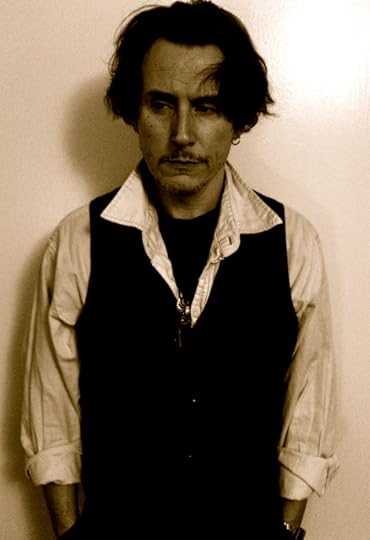
THE RESURRECTION WALTZ ON FACEBOOK
https://www.facebook.com/TheResurrectionWaltz


Leonard Cohen ~ The Future
Give me back my broken night
my mirrored room, my secret life
it’s lonely here,
there’s no one left to torture
Give me absolute control
over every living soul
And lie beside me, baby,
that’s an order!
Give me crack and anal sex
Take the only tree that’s left
and stuff it up the hole
in your culture
Give me back the Berlin wall
give me Stalin and St Paul
I’ve seen the future, brother:
it is murder.


To Be Or ?
 Reblogged from THE SCHOOL OF NIGHT, ALBANY NY:
Reblogged from THE SCHOOL OF NIGHT, ALBANY NY:

Many people have a moment when they realize which Shakespearean protagonist they
most closely mirror and say,
“Aha!”
But some of us realize that we are Hamlet and say, “Well, fuck."
~ Unknown
March 24, 2013
Book Recommendations …
March 23, 2013
THE ZERO YEAR …
THE ZERO YEAR
Trans-ferance.
Voice Of Angels
Voice Of Nothing
Voice Of Prophets
Voice
Of God
The Voice Of Self
The Waiting, (The Dead)
Receptacles…Shells
Of No Certainty. Never`Land.
Stuck in denial,
Traffic, Chaos
To tell the tale,
Trans-MIT dim echoes
Of ancient lies, eternal
Of night-sleep
Obscuring~Blinding
Dark.
For Forever Is Never A Forever
No Absolutes
No Signs
No Mistake
That upon this precipice
You dwell like the haunted man,
Year Zero Once Again
Handed down by the
Great King
Of Kings, rising falling
Forgetting
That upon this earth
Somewhere a child awakens,
Joyful & naive
Without fear.
_______________
WORLD ON FIRE
(From “The Resurrection Waltz, 2013)
Saxophone screaming.
Like jazz… morphine.
salvation…
running, thru the streets
To:
Refrain Refrain Refrain
To Begin ~ To End,
Proceed.
To, Some Where Some Way
Silence.
In Dead Lights And In Hyper-Space
And Unto The Holy Light of the
Last Cash Machine
As the Utopian Prophecy bleeds
Magnificent, Malevolent
In-To Thine Youthful Eyes Which Hears- Seas
Of Majestic rhymes & urban schemes,
A Salvation… Of Gun Shot Megaphone Deliverance
And Oh Unto Thee, We Deliver Great Hopes Of Miracles… Mercy.
Illuminations As Thy Cradles Rock Falsely
With The sad Arrogance Of Label Made Kings,
Offering Up All Your Dead sons,
father, mother, sisters, brothers
used up,
Mother-Fuckers
Who have killed the word, & the sound & whole world of grace
Monotonous with
“Hype”
With the smiles of Money~Greed Messiahs
Sampling Out Salvation, A Promise, A Lie,
All Their Words Now,
Just An Epiphany,
In A “Box”
Moving on down towards
South Of Heaven
Non-Transcendence Dead Enlightenment &
The Dead Roar Of Time
That says
“Nothing”
Nothing.
Fore-wards
Back-wards stealing From All the Lost Poets & the dead souls
With a weak childish snarl that says, “ME’ “MINE”
A place where no philosophers need apply.
With No More Gods To Worship &
No more new myths to create
As The Vessel Sinks,
Stinks,
Reeks Of Slamming bores
Rhyming Whores for all the same crimes
Yo.
Pants Un-Fit With weak words that will not survive
The Tides Of Time
And that shall never ever make it
Unto The Shore.
As one-day they will all say:
Kill Roy was here
And he wrote a poem upon the WALL
Which said this
“NOTHING”
Except that he was here.
With his Bling Props No Props No Echo Your Masses Asses Making
Hip Gang Signs & Buying Up Your Video Product
YO.
No Rebels left But Cowards Who just Sing The Song Of Thy Puppet Selves
Little Boys Of Violence With Little Swords That Cannot & Will Never Plow The Field
Of Men.
Because, with weapon in pants, they are shit. Who do not mend.
Hip?
Gone.
Now amongst us silent
Hop?
Dead
The very thought
That once we shit thru our veins, living
Lost,
Intolerable,
And MIA
As non aware un-alive
Follows when time is measured
monosyllabic and in waning days
For death recurrence
And numbers on papers, not soldiers
Become A Waste Of All That Is-Was Life.
But Can such an Armageddon
Accidental circumstances exist?
Life? Made of location and color
When the door of words is finally broken
With All levels un-covered
And Boring sets made of dead set repetition?
No.
Because every man
therefore may whisper in the wind,
tend to the madness,
up to him-self,
Disappear
in thy-self.
No.
That these are all faults
because every man
therefore may whisper in the wind,
Unto the vast world
Which is Now Dead
To Others.
Saxophone,
screaming…
(Once like jazz… morphine.. salvation… running, thru the streets)
A World On Fire
Which said something
That Mattered
Now dead.
________________
~ R.M. Engelhardt


Burn Brightly
~ R.M. Engelhardt ...more
- R.M. Engelhardt's profile
- 23 followers


